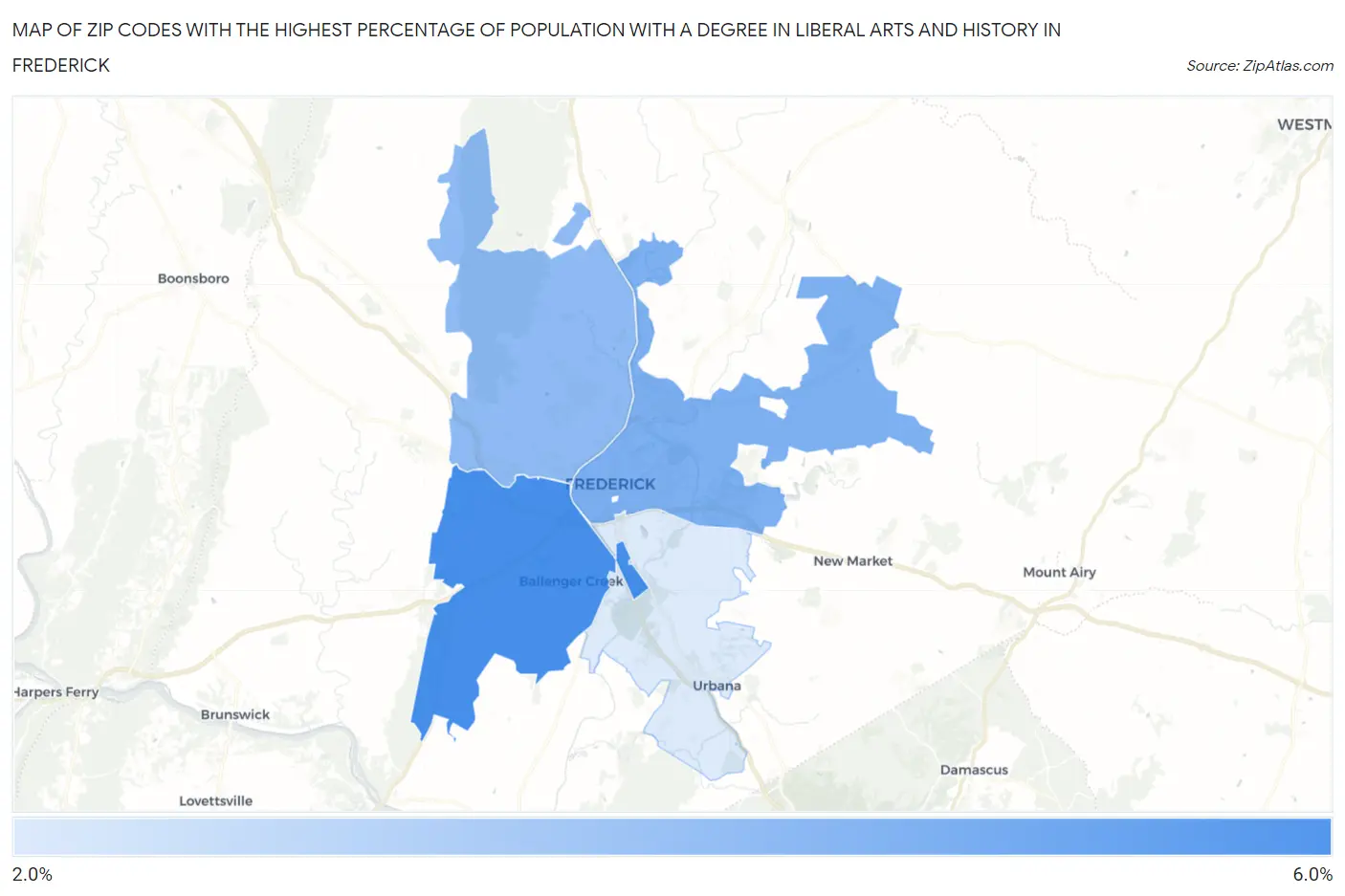Zip Codes with the Highest Percentage of Population with a Degree in Liberal Arts and History in Frederick, MD
RELATED REPORTS & OPTIONS
Liberal Arts and History
Frederick
Compare Zip Codes
Map of Zip Codes with the Highest Percentage of Population with a Degree in Liberal Arts and History in Frederick
2.7%
5.5%

Zip Codes with the Highest Percentage of Population with a Degree in Liberal Arts and History in Frederick, MD
| Zip Code | % Graduates | vs State | vs National | |
| 1. | 21703 | 5.5% | 5.0%(+0.467)#169 | 4.9%(+0.629)#9,867 |
| 2. | 21701 | 4.5% | 5.0%(-0.501)#223 | 4.9%(-0.339)#12,874 |
| 3. | 21702 | 4.2% | 5.0%(-0.860)#239 | 4.9%(-0.698)#14,116 |
| 4. | 21704 | 2.7% | 5.0%(-2.29)#323 | 4.9%(-2.13)#19,167 |
1
Common Questions
What are the Top 3 Zip Codes with the Highest Percentage of Population with a Degree in Liberal Arts and History in Frederick, MD?
Top 3 Zip Codes with the Highest Percentage of Population with a Degree in Liberal Arts and History in Frederick, MD are:
What zip code has the Highest Percentage of Population with a Degree in Liberal Arts and History in Frederick, MD?
21703 has the Highest Percentage of Population with a Degree in Liberal Arts and History in Frederick, MD with 5.5%.
What is the Percentage of Population with a Degree in Liberal Arts and History in Frederick, MD?
Percentage of Population with a Degree in Liberal Arts and History in Frederick is 4.6%.
What is the Percentage of Population with a Degree in Liberal Arts and History in Maryland?
Percentage of Population with a Degree in Liberal Arts and History in Maryland is 5.0%.
What is the Percentage of Population with a Degree in Liberal Arts and History in the United States?
Percentage of Population with a Degree in Liberal Arts and History in the United States is 4.9%.